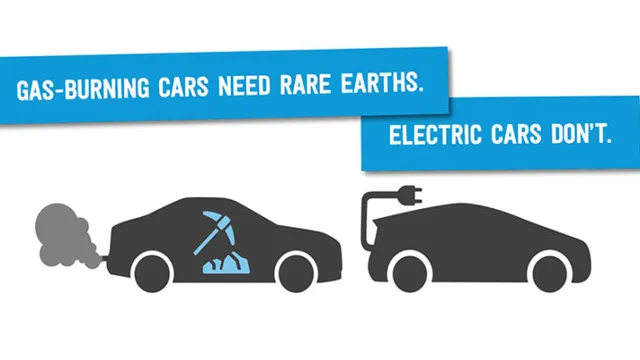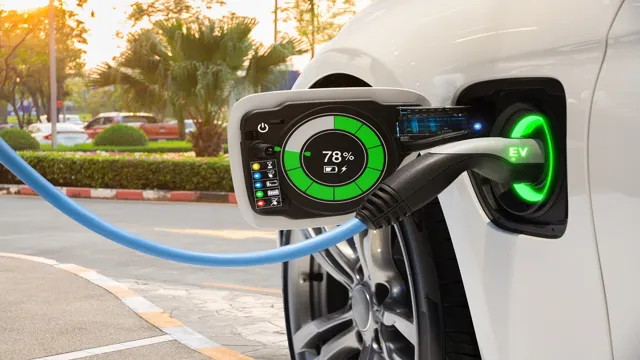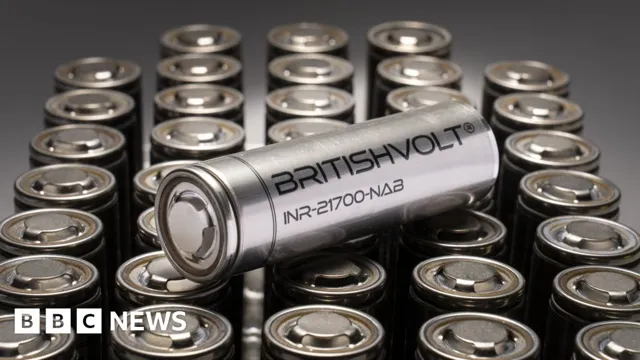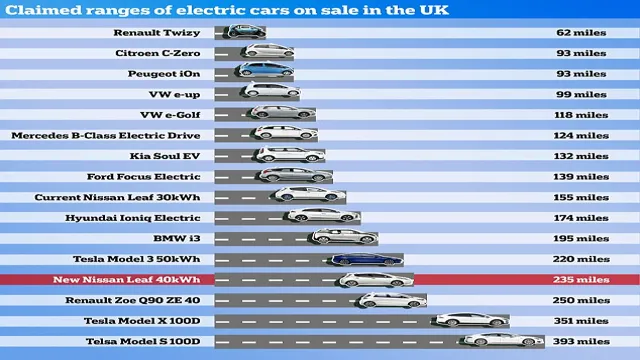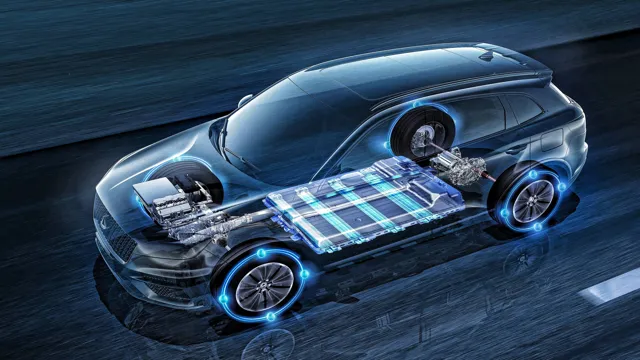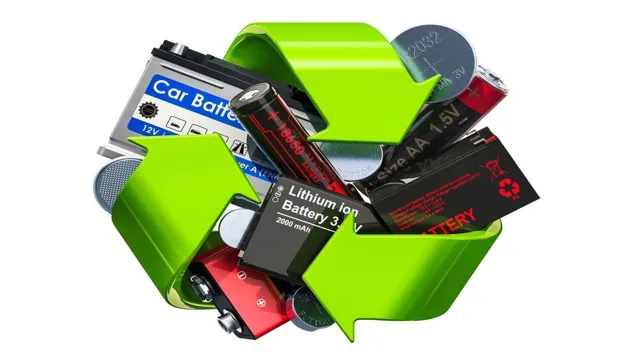Revolutionizing Transportation: The Future of Electric Car Batteries vs. Dependence on Oil
Electric cars have been gaining popularity in recent years as people become increasingly aware of the impact of traditional gasoline-powered vehicles on the environment. One of the biggest differences between an electric car and a gasoline-powered one is the source of energy – batteries compared to oil. While oil has been the primary source of energy for cars for over a century, electric car batteries are promising a cleaner and more sustainable future.
But what are the actual differences between the two? And which one is better for the environment and for consumers? In this blog, we’ll explore the pros and cons of both electric car batteries and traditional oil-powered vehicles, so you can make an informed decision on what’s best for you. So, buckle up and let’s dive in!
Benefits of Electric Car Batteries
Electric car batteries are a much cleaner and more sustainable alternative to the traditional oil-based engines that power most vehicles. The benefits of electric car batteries are numerous – they emit zero emissions and require less maintenance than a combustion engine, which means they cost less to run in the long term. Additionally, electric battery technology is constantly evolving, with advancements in range, durability, and charging time making them more viable as a mainstream transportation option.
The switch from gas-powered cars to electric vehicles is part of a larger shift towards renewable energy sources, and while the initial cost of purchasing an electric car may be higher, the long-term benefits to both the environment and the economy make it a smart investment for the future.
Eco-friendly and sustainable
Electric car batteries have numerous environmental benefits. Firstly, they reduce carbon emissions and air pollution, as electric cars do not emit harmful gases such as carbon dioxide and nitrogen oxides. This is advantageous for our air quality and overall health.
Secondly, electric car batteries are made from recyclable materials and can be recycled at the end of their lifespan. By doing so, it helps reduce waste and pollution from discarded batteries. Moreover, electric car batteries can also be repurposed for home energy storage and power grids, further increasing their usefulness and sustainability.
Overall, investing in an electric car battery not only benefits the environment but also provides long-term cost savings in terms of reduced fuel consumption and maintenance costs.

Opportunity for energy independence
Electric Car Batteries Electric car batteries are not just convenient for powering vehicles; they can also pave the way for energy independence. By storing renewable energy, such as solar or wind power, in electric car batteries, people can reduce their dependence on fossil fuels and the traditional power grid. This can be especially beneficial for those living in areas with frequent power outages or limited access to electricity.
Electric car batteries can also serve as a backup power source for homes during emergencies. Additionally, the widespread adoption of electric cars can lead to a reduction in greenhouse gas emissions and air pollution. This, in turn, can help mitigate climate change and improve public health.
Overall, electric car batteries have enormous potential to revolutionize the way we power our lives and promote environmental sustainability.
Less maintenance and longer lifespan
Electric car batteries have brought a huge revolution in the automotive industry. One of the major benefits of these batteries is their low maintenance and longer lifespan. Unlike traditional gasoline-powered cars, electric cars do not require regular oil changes, spark plug replacements, or belt adjustments.
Therefore, the cost of maintenance is significantly reduced, making it more affordable for consumers. Additionally, electric car batteries are designed to last longer than traditional car batteries, with some models having a lifespan of up to 10 years. This not only saves money but also reduces the impact on the environment, as fewer batteries will need to be produced and disposed of over the lifetime of the car.
As technology continues to advance the EV market, we can expect even better battery life, lower maintenance costs, and ultimately cleaner air. So, investing in electric car batteries is both environmentally conscious and financially beneficial.
Disadvantages of Oil-Powered Cars
Electric cars have been gaining popularity in recent years, and for good reason. There are many disadvantages to using oil-powered cars, which electric cars can address. First and foremost, oil-powered cars contribute significantly to air pollution and greenhouse gas emissions, thus leading to environmental issues such as global warming.
In contrast, electric cars rely on batteries for power, which do not produce any greenhouse gases during operation. Secondly, oil reserves are limited and depleting, which makes the reliance on oil as a fuel source a risk to the stability of global energy supply. Conversely, electric car batteries can be charged using renewable energy sources, such as solar or wind power.
Overall, switching to electric cars is a more sustainable and environmentally friendly choice that can help combat climate change and secure a stable energy source for the future.
Emissions and environmental impact
When it comes to emissions and environmental impact, oil-powered cars carry a significant disadvantage. Due to the combustion of fossil fuels, gasoline and diesel engines emit harmful pollutants into the atmosphere, contributing to air pollution and climate change. These emissions include carbon dioxide, nitrogen oxide, and particulate matter.
Not only do they harm the environment, but they can also be detrimental to human health, leading to respiratory problems and other illnesses. Additionally, the process of drilling and transporting oil can have negative impacts on ecosystems and wildlife. As we continue to prioritize sustainability and reducing our carbon footprint, shifting towards cleaner and more efficient forms of transportation, such as electric cars, is crucial for a brighter future.
Limited resource and fluctuating prices
One major disadvantage of oil-powered cars is their reliance on limited resources. Fossil fuels are a finite resource, and as we continue to use them, their availability decreases. This creates significant economic and geopolitical challenges for oil-consuming nations.
The uncertainty in resource availability also leads to fluctuating prices, which then leads to fluctuations in gas prices for drivers. This can be especially frustrating for those on a tight budget who often have to make tough choices when prices skyrocket. Furthermore, the burning of fossil fuels has led to significant environmental problems, such as air and water pollution and negative impacts on climate change.
As a result, the move to alternative energy sources, such as electric vehicles, has gained significant momentum in recent years. While oil-powered cars might be convenient in the short-term, their long-term costs and impact on the environment make them less appealing for those seeking sustainable and responsible transportation solutions.
Higher maintenance and repair costs
When it comes to cars, we all want something that is reliable and can last us a long time while being cost-effective. Unfortunately, oil-powered cars are not always the best option in terms of maintenance and repair costs. Because they rely on an internal combustion engine, oil-powered cars require more frequent oil changes, which can add up over time.
In addition, the engine components of these cars are often more complex and require specialized knowledge and expertise to fix any issues that arise. This means that labor costs for repairs can be higher, and parts for these cars may also be more expensive. In contrast, electric cars have fewer moving parts and require less maintenance overall, making them a more attractive long-term option for many car owners.
So while oil-powered cars might be the only option for some drivers right now, it’s important to carefully consider the long-term costs of ownership and maintenance before making a final decision.
Current State of the Electric Car Battery Industry
Electric car batteries and oil are in a constant battle for dominance in the automotive industry. In recent years, electric car batteries have made significant strides, with advancements in technology resulting in longer-lasting and more efficient batteries. This has led to increased adoption of electric vehicles, reducing the world’s dependence on fossil fuels.
However, the oil industry still remains a major player, with oil-powered cars still dominating the market. Nevertheless, the electric car battery industry is steadily gaining momentum, and experts predict that electric vehicles will eventually become more popular and affordable than oil-powered vehicles. As this transition occurs, oil companies will have to adapt their business strategies to stay competitive in a rapidly changing market.
Overall, the current state of the electric car battery industry is promising, with many exciting developments on the horizon that will help us move towards a more sustainable future.
Growing demand and innovation
The electric vehicle industry has been experiencing significant growth due to the increasing demand for environmentally friendly transportation options, and the development of innovative battery technology has played a crucial role in driving this growth. One major player, Tesla, has been leading the charge in creating high-performance and long-lasting lithium-ion batteries that power their electric cars. These batteries utilize an intricate combination of materials and design, allowing for greater energy density and longer ranges.
However, as more and more companies enter the market, competition is driving further innovation and advancements in battery technology. This has led to the exploration of alternative battery chemistries, such as solid-state batteries, that could potentially enable even greater performance and faster charging times. The current state of the electric car battery industry is one of rapid growth, fueled by a fervent pursuit of more efficient and sustainable forms of transportation.
Challenges to mass adoption
The current state of the electric car battery industry presents some challenges to the mass adoption of electric vehicles. One major challenge is the limited range of electric vehicle batteries, which can cause range anxiety among drivers. Although some electric cars have a range of up to 300 miles, this is still not sufficient for some drivers who travel long distances.
Additionally, the cost of electric car batteries also poses a challenge. While the cost of batteries has been decreasing over time, it still remains a significant portion of the overall cost of an electric car. Another concern is the availability of charging stations for electric cars.
While major cities have started to build charging infrastructure, rural areas and smaller towns may lack the necessary infrastructure to support widespread adoption. Despite these challenges, the electric car battery industry is rapidly evolving. Advancements in technology and increased investment in research and development are expected to lead to cheaper, longer-lasting, and more efficient batteries in the near future.
Conclusion: The Future of Electric Car Batteries and Oil
In the race between electric car batteries and oil, it seems that the electric car is pulling ahead. With the advancement of technology and the growing concern about the damage caused by fossil fuels, the electric car battery is becoming a more viable and attractive option. While oil has been the go-to for decades, it’s clear that its time is running out.
It’s time to embrace the electrifying revolution and switch to the clean and efficient power of electric car batteries. Let’s charge ahead towards a greener future!”
FAQs
How do electric car batteries differ from traditional car batteries?
Electric car batteries are rechargeable and typically have a higher capacity than traditional car batteries. They also use different chemical compositions and technologies to store and release energy.
Can oil be used as a backup power source for electric cars?
While oil can technically be used to generate electricity that could power an electric car, it is not an efficient or sustainable backup power source. Renewable energy sources like solar and wind power are better alternatives.
How do electric car batteries impact the environment compared to traditional car batteries?
Electric car batteries typically have a lower environmental impact than traditional car batteries, as they can be recycled and produce zero emissions while in use. However, the mining and production of materials used in electric car batteries can have negative environmental consequences.
Why are electric car batteries more expensive than traditional car batteries?
Electric car batteries use more advanced technology and materials, such as lithium-ion, which are more expensive to produce than traditional battery materials like lead-acid. However, as demand for electric cars increases and production scales up, the cost of electric car batteries is expected to decrease.
